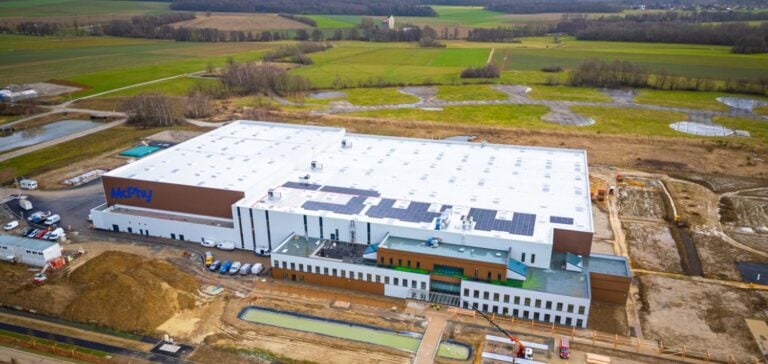McPhy inaugurated France’s first electrolyser plant in Belfort on Thursday. This event marks a major industrial challenge for the decarbonization of industry and heavy transport, provided that the cost of electricity makes low-carbon hydrogen profitable. Belfort is also a city of innovation in the field of hydrogen, as evidenced by the research carried out by the FC Lab de Belfort.
Pioneering Technology
McPhy uses “alkaline” electrolysis technology to produce hydrogen cleanly, using wind, solar or nuclear electricity, thus eliminating the need for methane gas. Jean-Baptiste Lucas, Managing Director, emphasizes that this innovation makes it possible to produce hydrogen without CO2 emissions, thus contributing to the energy transition.
Although the inauguration was held without a government representative due to the electoral period, it took place with the announcement of 28 million euros of public aid out of a total of 114 million promised by the European Union. This plant will enable France to achieve its sovereignty objectives in terms of installed electrolysis capacity, set at 6.5 gigawatts by 2030 and 10 GW by 2035.
A Strategic Installation in Belfort
Belfort, a city with a rich industrial past, is home to this plant thanks to a hydrogen ecosystem developed over nearly 40 years. The President of the Bourgogne-Franche-Comté region, Marie-Guite Dufay, has given her strong backing to the project. Currently empty, the bright, green factory will start producing EPU structures in July, followed by stacks in 2025.
Production targets and outlook
The plant aims to produce 260 units a year, according to Benoît Duriez, Industrialization Manager. McPhy, a former start-up resulting from research by CNRS and the French Atomic Energy Commission (CEA), now employs 260 people in France, Italy and Germany. Although the plant currently employs 25 people, it plans to rapidly increase its production rate.
Hydrogen Challenges and Markets
Despite technical challenges and ongoing support from public authorities, McPhy now has over 55 MW of projects signed internationally. The focus is on replacing “grey” hydrogen, produced in a polluting way from methane gas, with low-carbon hydrogen for industrial uses such as petrochemicals, fertilizer and steel production, and electrofuels for aviation.
International Opportunities and Developments
The cost of electricity remains a major obstacle to the adoption of hydrogen in France, where negotiations between EDF and manufacturers are crucial. EDF’s 14% stake in McPhy could facilitate these discussions. In the meantime, McPhy is looking abroad, with Germany’s HMS Oil and Gas as its first customer for a 64 MW project, and a licensing agreement with India’s Larsen & Toubro to manufacture the electrolyzers in India. The Moroccan group OCP was also present at the inauguration.
The inauguration of this plant represents an essential milestone for McPhy and the energy transition in France. With solid financial backing and advanced technology, McPhy is positioned as a leader in clean hydrogen production. This development holds great promise for global industrial decarbonization, in line with the European Union’s climate and energy objectives.






















